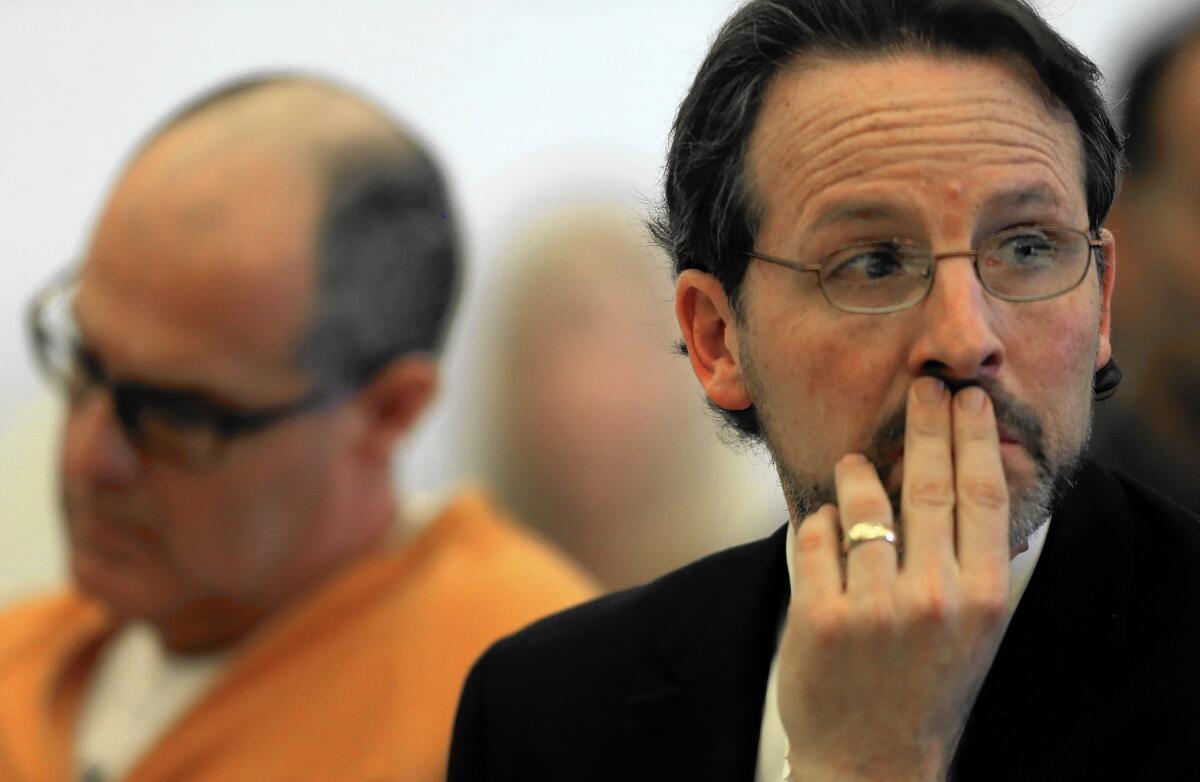Sheriff’s Department says it’s reviewing whether deputies violated policy with informant log

- Share via
A day after the revelation of a hidden log about informants in local jails, the Orange County Sheriff’s Department said Wednesday that it’s still reviewing whether any of its deputies violated policy by not disclosing the records earlier.
Sheriff’s Lt. Mark Stichter said the department is in the middle of an administrative investigation probing the use of jailhouse informants and whether deputies properly turned over information about informants to defendants and prosecutors.
So far, no deputies have been disciplined or reprimanded, according to Stichter.
“There’s a lot that’s in process, so there’s nothing that’s been completed,” he said.
Allegations about the misuse of jailhouse informants have roiled the Orange County legal system for months.
In the latest twist, the Sheriff’s Department revealed Tuesday that deputies assigned to handle informants had kept five years worth of secret records cataloging their interactions with inmates.
The log was revealed during a court hearing for convicted murderer Daniel Wozniak. Jurors have recommended that Wozniak, 31, of Costa Mesa, be put to death for the 2010 killings of Orange Coast College students Sam Herr, 26, and Juri “Julie” Kibuishi, 23. His sentencing is scheduled for later this month.
Wozniak’s attorney, public defender Scott Sanders, plans to incorporate the newly discovered log in a motion arguing that Wozniak should not be put to death.
Sanders has crusaded against the Sheriff’s Department and district attorney’s office in multiple high-profile death penalty cases. He has alleged that neither organization can be trusted to reveal evidence that defendants are legally entitled to see.
On Tuesday, the district attorney’s office said it too was kept in the dark about the informant log despite requests for information that should have prompted deputies to reveal the records.
“The OCDA expects police officers to tell the truth and pursue justice,” the office said in a statement, prompting some pushback from the Sheriff’s Department.
“We completely agree with that statement,” Stichter said Wednesday. “And we aim to do that each and every day with the department and with our jobs.”
Last year, Sanders persuaded a judge to remove the entire district attorney’s office from the case of admitted mass killer Scott Dekraai, who shot his ex-wife and seven other people to death at a Seal Beach salon in 2011.
In that case, Superior Court Judge Thomas Goethals ruled that law enforcement had repeatedly violated Dekraai’s rights by failing to turn over evidence to his attorney.
He also wrote that two sheriff’s deputies either lied or intentionally withheld information about an informant record-keeping system called TRED.
One of the deputies Goethals singled out, Ben Garcia, also was involved in Tuesday’s revelation.
According to testimony from sheriff’s Sgt. Kirsten Monteleone, Garcia revealed the informant log to her three or four weeks ago.
Monteleone said she met with Garcia to ask if he had any additional records after another deputy in a separate murder case disclosed that he had kept four years worth of his own notes.
When Monteleone showed Garcia those notes, he said they seemed similar to the log deputies had kept about informants for years, according to Monteleone’s testimony.
Monteleone said she’d had no idea deputies kept that log. Its entries reportedly span from 2008 to 2013.




